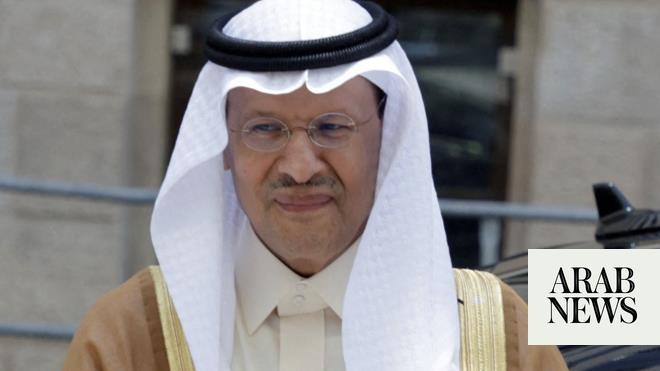
JEDDAH: Divorce rates in the Kingdom began climbing as soon the lockdown ended and life started returning to normal, the latest report by the Saudi Justice Ministry shows.
In June, 4,079 divorce certificates were issued in Saudi Arabia — 30 times more than the 134 granted in April when authorities began implementing strict movement restrictions.
The sudden spike is extreme, but nevertheless mirrors a dramatic increase in divorce rates in the Kingdom in recent years.
Highlighting the issue, a Saudi social entrepreneur and divorce coach launched a project to help people overcome what she describes as the “shame and stigma” associated with marriage break-up.
Coach Ghazal Hashim started her “Turn the Page” podcast in 2017 with a friend, education specialist Basma Bushnak.
The podcast later inspired Hashim to set up a coaching business, the Nehayat Bedaya center (or “together for a better ending”), which specializes in divorce-related issues.
This voluntary initiative is still the only Arabic platform to address the social, legal, emotional, professional and family-related challenges of life after divorce.
The idea began when Hashim and Bushnak met to discuss the challenges both faced as single mothers.
Later they thought about offering help and support to others in their situation.
“We thought about co-writing a book, but after a lot of talking we decided to launch a podcast where we could hold discussions in a friendly manner,” Hashim told Arab News.
The first episode was aired in 2017 with Mstdfr Network. The podcast, now in its fourth season, currently appears on the Mohtwize Network.
The podcast has matured during the years. The first season focused on women, but when the two hosts realized that divorced men also lack a voice, they began including male guests in the discussion.
Hashim said that they do not “encourage people to get a divorce, but dedicate their efforts to help both divorced men and women to overcome the social shame and begin their new journey in life with confidence.”
Separation should not be viewed as failure, she said.
“Divorce can be a catalyst for a positive change in life when married life becomes impossible,” she added.
“We aim to break the stigma related to divorce. Divorce is seen as as a bad thing that shouldn’t be talked about, while in fact it is an issue that exists at a high rate in our society — you can hardly find a family that doesn’t have a single divorce case among its members.”
In the podcast’s third season, they expanded the discussion to include challenges and risks that can threaten the family’s unity and lead to divorce if not properly dealt with, such as infidelity and addiction.
“We have reached the fourth season, published around 50 episodes, and the total number of listeners on the SoundCloud platform alone has reached over 200,000,” said Hashim.
The podcast’s website also allows listeners to share their experiences of separation, single parenting and coping strategies.
They also hold a monthly support group meeting with experts, gathering people who have been divorced for two years, with each session addressing a new topic.
Hashim’s Nehayat Bedaya center aims to provide a road map for those going through divorce.
“My contact with divorced people, and my reading and meetings with experts as I was preparing the podcast’s episodes, led me to become a certified divorce coach in 2019. Now I’m doing a master’s degree in marriage and family therapy,” she said.
Hashim has gathered a team of young clinical psychologists to support newly divorced people on what she said can be “a very lonely journey for some.”
The center, located in Jeddah, offers divorce coaching services and closed support group sessions. Currently, it is aimed at divorced women in their first year of separation, but later plans to include divorced men as well as children of separated couples.
“Divorce coaching is a flexible, goal-oriented process designed to support, motivate and help people going through divorce make the best decisions for their future,” Hashim said.
“Coaching is different than therapy, but they do overlap. A therapist is an expert whose main focus is to uncover and recover, but a coach is a partner who focuses on discovering. Coaching is future-focused. Both are professionals with the main focus on helping their clients,” she said.
“They can also work together as a lot of therapists sometimes apply coaching skills. A coach never claims to know better, and we always refer to therapists if we discover a client is severely abused or could suffer from mental health issues, for example,” she added.
People sometimes choose a coach instead of a counselor because they find it more affordable. But choosing the wrong person to ask for help can have a negative impact on the client, she warned.
Hashim hopes to include legal and consultancy services in the center’s offerings along with training and specialist workshops as part of a national project to make society’s view of divorce more tolerant and supportive.
She said the media has played an important role in reinforcing the social stigma associated with divorce, which is generally linked with failure, pain and child delinquency.
“Divorce itself is not the problem, it is how we deal with it. Unfortunately, we lack positive images and examples of successful or healthy divorce,” she said.
“If divorce had been this bad, our religion wouldn’t have legalized it, and (wouldn’t have) dedicated a whole surah (chapter) in the Qur’an to divorce.”
She said that while divorce is a challenge for both sexes, divorced men are rarely encouraged to acknowledge their feelings or learn from their experiences, so tend to go through several marriages and fail each time.
In most Arab societies, divorce is discussed from an exclusively religious point of view, resulting in a lack of specialized family and marriage-related support services and an awareness of their importance, Hashim said.












